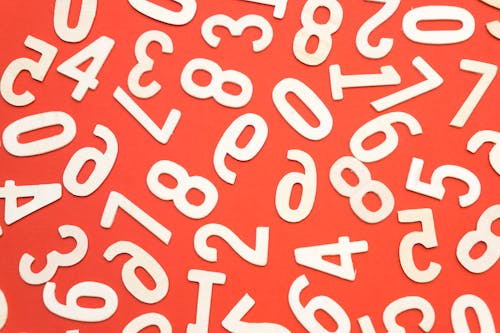What are kinds of numbers?
An arithmetical value, expressed by a word, symbol, or figure, representing a particular quantity and used in counting and making calculations is a number. However in maths, numbers are classified into different categories. And here are they:
- Whole numbers: The basic counting numbers that do not include fractions, negatives and decimal part and which includes 0 are whole numbers like 0, 1, 2, 3, ...
- Natural numbers (N): Whole numbers that do not include 0 are natural numbers like 1, 2, 3, 4, 5, ...
- Even numbers: Numbers that are exactly divisible by 2 are even numbers like 0, 2, 4, 6, 8, 10, ...
- Odd numbers: Numbers that are not exactly divisible by 2 are odd numbers like 1, 3, 5, 7, 9, ...
- Positive numbers: Numbers that are greater than zero like 1, 4, 78, etc.
- Negative numbers: Numbers that are smaller than zero like -7, -93, -25, etc.
- Prime numbers: Numbers that cannot be divided by any other number except one and itself are prime numbers like 2, 3, 5, 7, 11, 13, 17, 19, ...
- Composite numbers: Numbers that are product of two or more numbers are called composite numbers like 4, 6, 8, 9, ...
- Consecutive numbers: Numbers that can be written serially are consecutive numbers like 1, 2, 3, 4; 2, 4, 6, 8, 10; ...
- Integers (Z): Whole numbers and negatives are called integers like ...-2, -1, 0, 1, 2, ...
- Rational numbers (Q): Numbers that can be written as a fraction where the numerator and the denominator both are integers are rational numbers like 1/1, 34/-2, -70/100, etc.
- Irrational numbers (I): Numbers that cannot be written as a fraction are called irrational numbers like 1.12347843..., 64.44444..., 18.121204041212..., etc.
- Square numbers: Integer that can be written as the square of any integer is a square number like 1, 4, 9, 16, 25, ...
- Polygonal numbers: Numbers that can be written in form of dots to represent shapes like triangle numbers, square numbers, etc.
- Surds: Irrational root of a rational number is a surd like √2, √3, √5, etc.
- Real numbers (R): Collection of all the numbers on a number line are real numbers like 1.564, 57/-2, 3.14..., etc.
- Imaginary number: Square root of a negative number is i, the imaginary number like 10i, 563i, 2i, etc.
- Complex numbers (C): Writing an operation of real an imaginary numbers together are called complex numbers like 3-45i, 91i+6, 43i+23-72, etc.
- Algebraic numbers: Any number that is the root of a non-zero polynomial with rational coefficients like rational numbers, polynomial roots, etc.
- Transcendental numbers: Numbers that are not algebraic are transcendental numbers like e, π, etc.
- Trigonometric numbers: Numbers that are sine or cosine of a rational multiple of π like π/4, √2/2, etc.
- Non- negative numbers: Numbers that aren't negative.
- Non- positive numbers: Numbers that aren't positive.
For more information, click here.
Some posts have been marked as "Old Posts". Less likely, but they might have out dated or incorrect information, ugly looking bits of code, no labels, etc. Don't get me wrong, many of these posts are top-notch and interesting too.
I thought it would be better not to delete or revamp these posts, even if they suck. The bitter truth is that old works always suck, but I take that as a positive tool to convey that I am growing. Besides there's no better way to showcase my journey without these old, messy, poorly written posts!
I thought it would be better not to delete or revamp these posts, even if they suck. The bitter truth is that old works always suck, but I take that as a positive tool to convey that I am growing. Besides there's no better way to showcase my journey without these old, messy, poorly written posts!
Old Post
